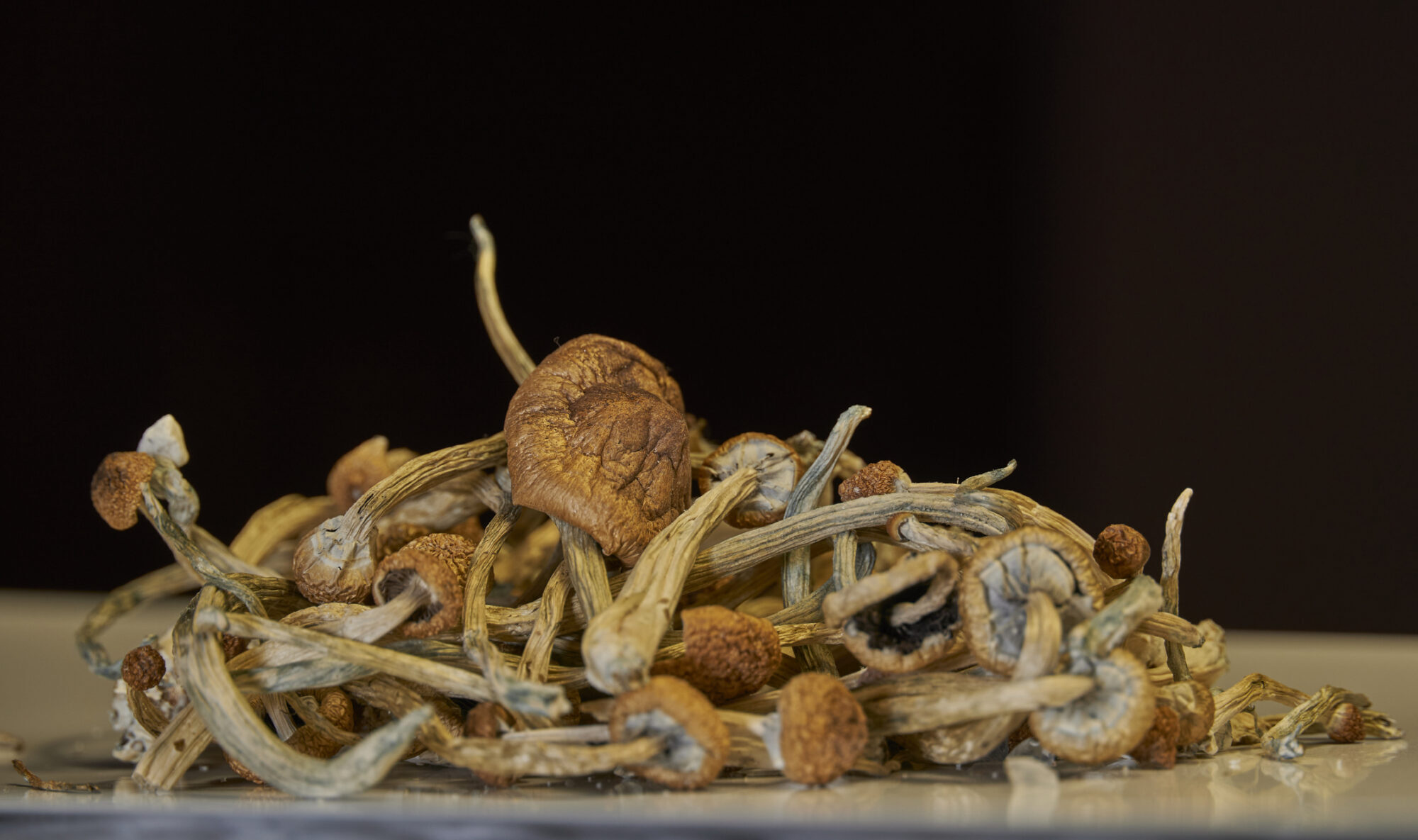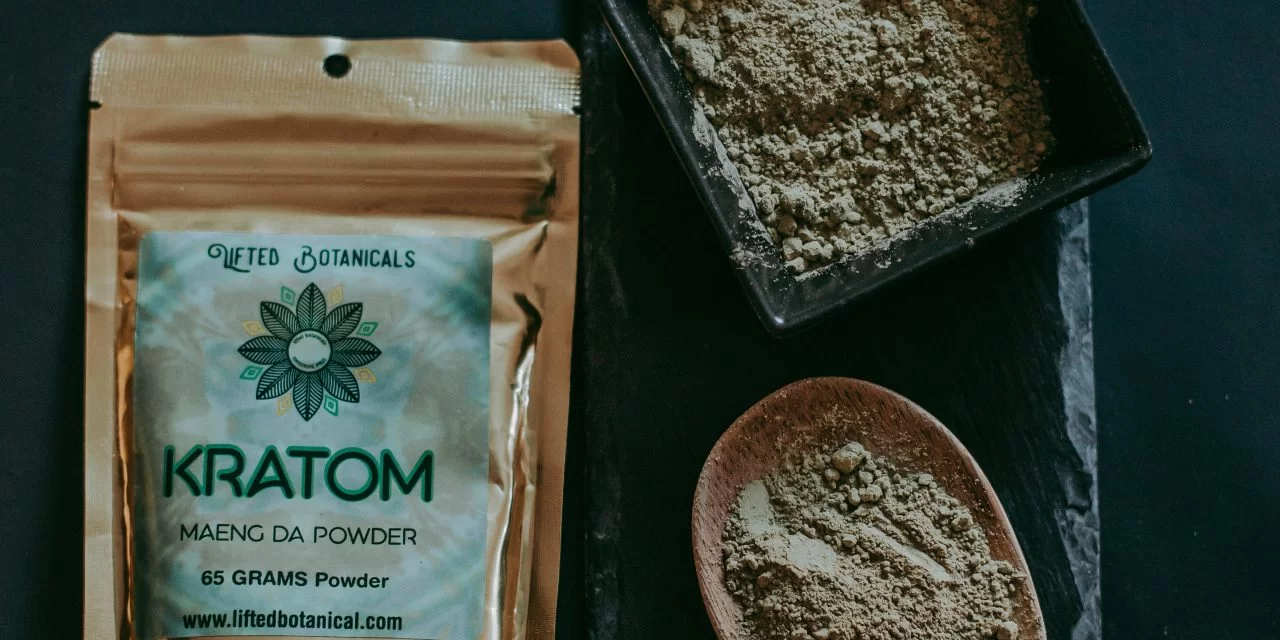Arizona has approved the nation’s first clinical trial using whole mushroom psilocybin to treat post-traumatic stress disorder (PTSD) in first responders and military veterans. The federally authorized study, led by the Scottsdale Research Institute with support from Alira Health, will involve 24 participants who receive psilocybin in a controlled medical setting. Backed by the Arizona Department of Health Services, the program stems from a 2023 bill allocating $5 million for psychedelic research. Lawmakers hope the results will shape future policy and treatment access. Read more at Marijuana Moment.
Connecticut Experts Urge Balanced Regulation of Kratom, Not a Ban
Natural leaf kratom should not be conflated with its potent synthetic derivatives, says Dr. C. Michael White, a University of Connecticut pharmacy professor and chair of the Kratom Consumer Advisory Council. In his recent Hartford Courant opinion piece, White stresses that while synthetic opioids derived from kratom’s alkaloids—such as 7-hydroxymitragynine—pose serious addiction risks, natural kratom leaves have a much milder pharmacological profile. The council supports Connecticut’s proposed framework requiring product registration, lab certification, and age restrictions, ensuring consumer safety without restricting access for responsible adult users. White argues that maintaining legal access to natural kratom may offer a safer alternative for those managing chronic pain or opioid dependence, provided appropriate safeguards are in place.
Ohio Lawmaker Applauded for Kratom Safety Legislation
The Global Kratom Coalition (GKC) has applauded Ohio Senator Louis Blessing for introducing Senate Bill 299, a measure designed to protect consumers by prohibiting concentrated synthetic 7-OH opioids while maintaining access to naturally derived kratom. The bill aims to create clear quality and safety standards for kratom products while cracking down on dangerous lab-synthesized compounds that have been linked to addiction and tragic deaths. According to GKC scientific advisor Dr. C. Michael White, the legislation reflects a responsible, evidence-based distinction between natural kratom’s mild effects and the potent synthetic versions that pose serious health risks. With support from both consumer advocates and scientific experts, SB 299 positions Ohio at the forefront of national efforts to regulate kratom safely and responsibly. More details are available at WRAL News.
Riverside County Weighs Limits on Synthetic Kratom Sales
Riverside County officials are considering new regulations targeting kratom-based products, particularly synthetic derivatives known as 7-OH compounds. The Board of Supervisors held a public hearing Tuesday to discuss restricting sales of these high-concentration products, which officials say pose health risks similar to opioids.
The proposal would prohibit sales of kratom items containing more than 2% alkaloids to individuals under 21 and ban youth-directed marketing. Violators could face misdemeanor charges and fines. Similar restrictions are already in effect in several California cities, including Oceanside and San Diego.
The move follows a U.S. Food and Drug Administration request for the DEA to review kratom derivatives for potential inclusion on the federal controlled substances list.
Read the full story via MSN News.
New York Debates Legalizing Psilocybin for Medicinal Use
New York state lawmakers held a hearing on the potential legalization of psilocybin, the psychoactive ingredient in “magic mushrooms,” to assess its medicinal benefits and risks. Currently illegal and classified as a Schedule 1 controlled substance by the DEA, psilocybin is nonetheless allowed for supervised treatment in states like Oregon and Colorado for adults over 21. Clinical experts highlighted its breakthrough therapy status with the FDA for mental health conditions. Assemblywoman Amy Paulin introduced bills to legalize psilocybin cultivation and adult use for health purposes, emphasizing the need for careful legislative consideration.
Retired FDNY firefighter Joe McKay shared his personal story of debilitating cluster headaches and opioid addiction, explaining how psilocybin treatment was transformative, giving him his life back. The hearing underscores growing support for a regulated framework that balances public safety with therapeutic access source.
Experts Urge Research Over Restrictions as FDA Targets Kratom Compound
As the U.S. Food and Drug Administration moves to classify 7-hydroxymitragynine (7-OH)—a naturally occurring compound in kratom—as a controlled substance, advocates warn that banning it could harm consumers who rely on the plant for relief. Kratom, used for centuries in Southeast Asia, is valued in the U.S. for its natural ability to boost energy and ease pain. Supporters say responsible use has helped many reduce dependence on traditional opioids. Dr. Michele Ross of the 7-HOPE Alliance says more research, not prohibition, is the answer. “If you’re a chronic pain patient, your pain doesn’t go away just because something becomes illegal,” she said. Many hope regulators will explore kratom’s therapeutic potential before restricting access.
Source: MSN
Jackson Officials Discuss Possible Kratom Regulations
JACKSON, Tenn. — Community members and local leaders gathered this month to discuss the future of kratom in Jackson. The Jackson City Council, during its September 2 meeting, raised the idea of introducing regulations on the distribution of the plant-based product.
District 73 Representative Chris Todd emphasized the importance of oversight, noting particular concern around underage sales. While Tennessee currently does not regulate kratom, lawmakers say they will continue exploring options to ensure responsible use and distribution.
The discussion reflects a growing national conversation about kratom, which is used by many adults as a natural product while also drawing attention from policymakers.
For the full report, visit WBBJ 7 Eyewitness News.
Trump’s Cannabis Rescheduling: Relief and Complexity in New Era
President Donald Trump’s push to reschedule cannabis from Schedule I to Schedule III presents both new opportunities and fresh challenges for the industry and regulators. While rescheduling would end the notorious IRS 280E tax penalty, allowing cannabis businesses to claim normal deductions and improve profitability, it does not equate to federal legalization of state-licensed markets. Instead, only DEA-registered entities will access the full benefits, while state dispensaries remain outside federal legitimacy.
Big Pharma is expected to enter the space at the level of pharmaceutical-grade products, not retail dispensaries. State markets and jobs remain protected, as federal changes won’t force states to shutter their systems. For operators, adapting facility security and compliance are now critical, as the world watches this pivotal moment in U.S. cannabis history.
Read the full analysis at Forbes: “Trump And Cannabis Rescheduling: Opportunities And Limitations Under Schedule III”.
Massachusetts Lawmakers to Weigh Psilocybin Legalization at September 29 Hearings
Massachusetts lawmakers are set to debate two significant psilocybin proposals during public hearings on September 29. The first, House Bill 4050, introduced by Rep. Patrick Kearney (D), would remove psilocybin and psilocyn from the state’s list of controlled substances, creating a regulated framework for cultivation, distribution, and limited home growing. It also includes equity measures such as tax credits for small cultivators and support for low-income residents seeking psychedelic-assisted therapy.
A separate proposal, House Bill 2532 by Rep. Lindsay Sabadosa (D), would establish a five-site pilot program for nonprofit therapeutic treatment centers overseen by the Department of Public Health. Advocates say both bills highlight the growing recognition of psilocybin’s potential in addressing mental health challenges.
Read the full report at The Marijuana Herald.
FDA Targets Synthetic 7-OH Kratom Products, Not Natural Leaf
The U.S. Food and Drug Administration (FDA) is recommending federal scheduling for highly concentrated kratom products containing synthetic or enhanced 7-hydroxymitragynine (7-OH), a powerful opioid-like compound, following regulatory actions in states like Mississippi. The FDA stresses its proposal does not target natural kratom leaf products, which contain only low levels of 7-OH, but rather focuses on lab-made or fortified products that may contain up to 98% 7-OH.
Mississippi’s new law, HB 1077, bans kratom products with more than 1% 7-OH and restricts sales to those age 21 and over. Advocates argue natural kratom helps people avoid stronger opioids, while critics cite the heightened risk of synthetic products. The debate continues, with more details at the original Northside Sun article and in the FDA’s official press release.
New York Lawmakers to Hold Hearing on Psilocybin’s Medical Potential
New York lawmakers plan to hold a public hearing on September 30 to examine the medicinal value and risks of psilocybin, the psychoactive compound found in “magic mushrooms.” The Assembly Health Committee, led by Chairwoman Amy Paulin (D), announced the meeting as the state considers regulated pathways for supervised use.
The move comes as the FDA has designated psilocybin as a “breakthrough therapy” for major depression, suggesting it could outperform current treatments. Similar reforms have already passed in states like Colorado and Oregon.
Several bills have been introduced in New York to legalize or regulate psilocybin, but none have advanced out of committee. Lawmakers say the issue is pressing amid the state’s ongoing mental health crisis.
Read the full report at Marijuana Moment.
Ohio’s Decision on Kratom Ban Highlights Need for Evidence-Based Regulation
Ohio is currently considering a statewide ban on kratom, but a recent move by the Board of Pharmacy to delay the decision signals recognition of an important distinction: not all kratom products are the same. Governor DeWine’s recommendation would have banned natural kratom leaf alongside newer, more dangerous synthetic derivatives of 7-hydroxymitragynine (7-OH), despite much of the harm and risk stemming from these concentrated synthetic substances, not the traditional plant.
Florida and the FDA offer a model for a targeted approach by restricting 7-OH levels and leaving natural kratom leaf available to consumers. Clinical studies show natural leaf kratom has a safer profile compared to the addictive risks of synthetic 7-OH, which is created by chemical extraction and manipulation and linked to opioid-like effects.
Experts advocate for smart regulation, including age restrictions and alkaloid content limits, to keep consumers safe without eliminating natural kratom. For additional information, visit the source at the Canton Repository.
Nebraska Officials Tighten Medical Marijuana Rules, Drawing Public Outrage
Nebraska’s Medical Cannabis Commission has voted to impose stricter regulations on the state’s medical marijuana program, despite overwhelming voter approval for broader access in 2024. The new rules cap the number of dispensaries at 12 statewide, limit cultivator and manufacturing licenses to four each, and prohibit smoking, vaping, and edible products. Patients will be restricted to purchasing up to 5 ounces of cannabis every 30 days, with additional limits on THC concentration.
Advocates, including Nebraskans for Medical Marijuana director Crista Eggers, say the commission has defied the will of voters who supported legalization by more than 70 percent. “This is a direct assault on patients, families and the democratic process itself,” Eggers said.
The revised rules now await Gov. Jim Pillen’s approval. Read more at Marijuana Moment.
Congress Calls for Review of State Cannabis Laws as Support for Legalization Grows
A congressional committee is calling on federal agencies to review the effectiveness of state cannabis regulations, signaling growing interest in aligning oversight with the expanding legal markets. The House Appropriations Committee has directed agencies to assess both common frameworks and innovative enforcement models emerging across states.
The move comes as national momentum builds for legalization. A new poll shows two-thirds of U.S. voters support ending federal cannabis prohibition, with majority backing across nearly all age groups. Meanwhile, state-level actions continue to shape policy: Nebraska activists have filed a 2026 ballot measure to enshrine cannabis rights, and Delaware reported $7.4 million in sales during its first month of legal sales.
At the same time, interest in psychedelics is rising, with Health Secretary Robert F. Kennedy Jr. pledging support for advancing therapies in Colorado.
Read more at Marijuana Moment.
Ohio Considers Future of Kratom as Wellness Demand Rises
The conversation around kratom in Ohio is shifting, with state officials and community advocates discussing whether to regulate this increasingly popular plant. Used for centuries in Southeast Asia, kratom has found favor among Ohioans for its energizing and calming effects, often chosen as a gentler alternative to pharmaceuticals and alcohol. Michael Young, owner of Sacred Waters Kava Bar, champions the natural form of kratom, noting its role in holistic wellness and social settings. Many believe responsible use offers benefits such as increased alertness and relief from pain and anxiety. While health professionals emphasize the need for further research to establish safe guidelines, there’s growing support for informed regulation over outright prohibition. The aim is to empower consumers while ensuring safety, continuing kratom’s tradition as a natural well-being option. For more details, visit News 5 Cleveland.
Kratom Association Calls Out Synthetic 7-OH Makers for Ignoring Safety Rules
The American Kratom Association (AKA) is taking aim at Shaman Botanicals and founder Stephen “Vince” Sanders, accusing them of sidestepping federal law with their synthetic 7-hydroxymitragynine (7-OH) products. In a statement on August 22, the group argued that 7-OH was marketed illegally from its debut in 2023 because no safety data was ever provided to justify its use.
The AKA emphasized the difference between natural kratom, which has centuries of documented safe use, and 7-OH products synthesized with industrial chemicals. Critics within the association say blaming regulators for scheduling efforts ignores the real problem: manufacturers never proved the products were safe in the first place.
The organization says it will continue working to protect consumers and preserve trust in the natural kratom market.
Full details are available via Reuters.
Toledo Residents Voice Views on Proposed Kratom Ban
At a recent Toledo City Council meeting, community members gathered to express their perspectives on the council’s proposal to ban kratom. The discussion highlighted the passionate engagement of local residents, with individuals speaking both for and against the measure. Many supporters of kratom emphasized its positive role for those seeking alternatives for wellness and relief. Their voices illustrated the significance of thoughtful dialogue and community feedback in public policy decisions.
As the city weighs its options, the exchange of ideas demonstrated the values of open debate and respect for diverse viewpoints. Toledo’s consideration of the proposal is part of a broader conversation about personal choice, health, and regulation. For more details on the story, visit The Blade’s coverage of the meeting.
Alaska Ballot Initiative Seeks to Decriminalize Psychedelics
A new ballot initiative in Alaska has cleared a key hurdle, allowing organizers to begin gathering signatures in support of decriminalizing psychedelics. If successful, the measure would remove criminal penalties for adults possessing or cultivating psychedelic substances, including psilocybin mushrooms, for personal use. Proponents argue that changing the law could improve access to therapies and help destigmatize these substances, which are gaining attention for potential mental health benefits.
The initiative represents the latest effort in a nationwide wave of psychedelic reform, following similar moves in Oregon and Colorado. Advocates say effects from these reforms are being closely watched across the country. Full details of the initiative and implications for Alaskans can be found at the Oregon Capital Chronicle’s report on the topic.
Florida Enacts Swift Ban on Concentrated 7-OH Kratom Compound
Florida has moved decisively to protect public health, issuing an emergency rule that classifies isolated and concentrated 7-hydroxymitragynine (7-OH) as a Schedule I controlled substance. The action empowers law enforcement to immediately remove concentrated 7-OH products—often found in shots, capsules, powders, and gummies—from retail shelves statewide. Officials cited rising ER visits and poison control calls, particularly among people under 25, as key drivers for the urgent response. Health leaders praised the move as a targeted step to curb access to potent, concentrated derivatives while signaling a broader push for responsible regulation of unregulated wellness products. Enforcement begins immediately, with the goal of keeping communities safe and informed. Read the original report for full details at MSN.
Federal Judge Halts Utah Psilocybin Prosecution, Citing Religious Freedom
A federal judge has ruled in favor of Singularism, a Utah-based religious group, halting criminal prosecution against its member Bridger Jensen and denying the state’s motion to dismiss. Judge Jill N. Parrish found that applying Utah’s Controlled Substances Act to prohibit the group’s sacramental use of psilocybin mushrooms imposes a substantial burden on religious exercise, violating both the state’s Religious Freedom Restoration Act and constitutional protections. Notably, the Act allows secular exemptions for medical use but not for religious use, failing the required neutrality and triggering strict scrutiny. The court determined the prosecution stemmed from bad faith, intended to harass the group for its sincere religious practices. This precedent-setting case may open new pathways for religious exemptions to Utah’s psilocybin ban. Read the full article at The Marijuana Herald.




















